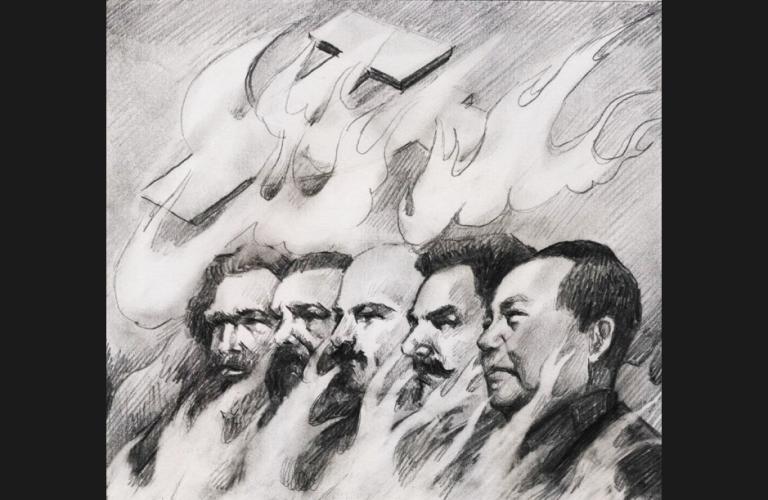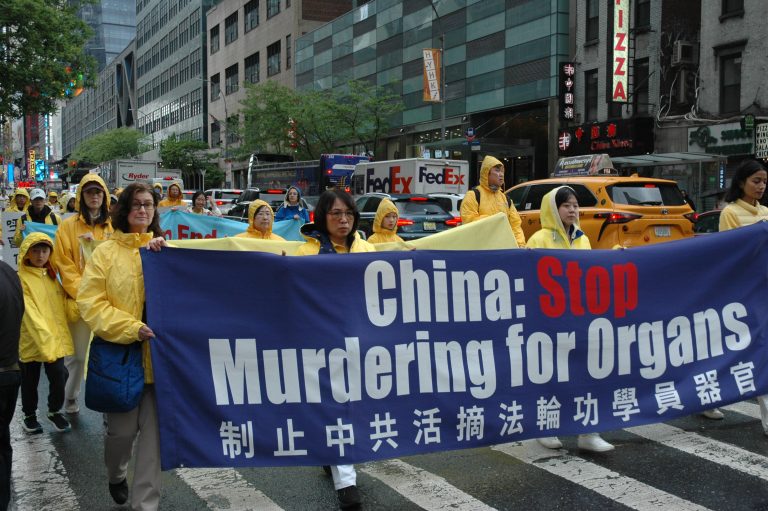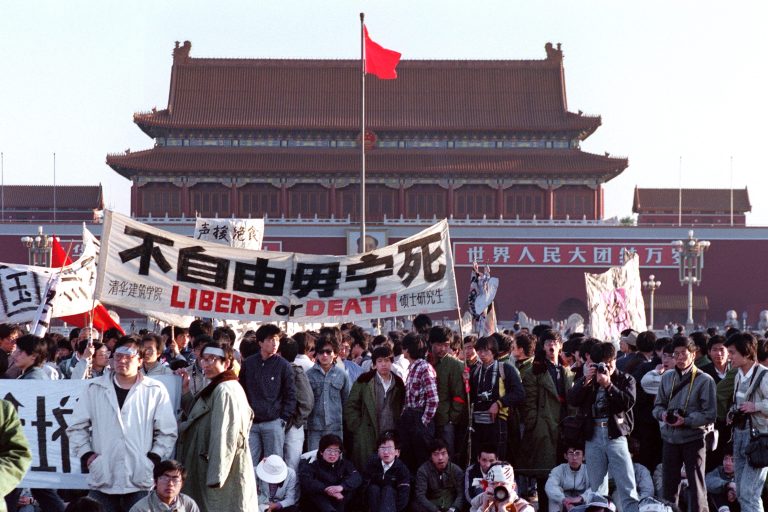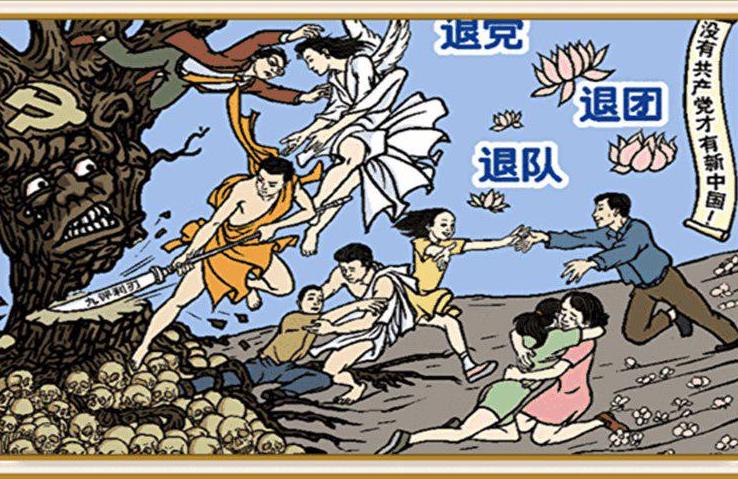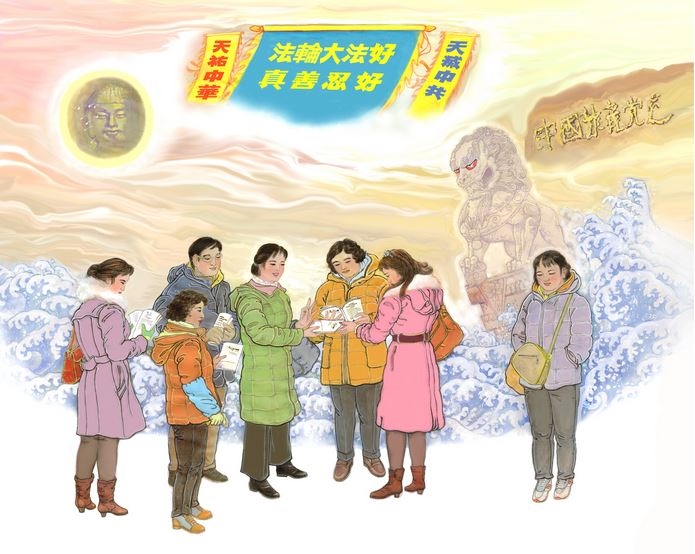First published in 2006 by the Chinese-language Epoch Times, this series lays out in detail the vast system of Communist Party culture that dominates mainland China today and how it violently replaced the ancient moral and spiritual heritage of the Chinese people. Vision Times is proud to present a translation of Disintegrating the Culture of the Chinese Communist Party that sheds light on the fundamental characteristics of the world’s biggest communist state, while keeping true to the message intended by the original authors.
Traditional Chinese Culture and Communist Party Culture (Part I)
Introduction
The ancient Chinese called their land shen zhou, or “the land of the divine.” The emperor was called the “Son of Heaven,” and assumed his mandate to rule from above. The Temple of Heaven, where the emperor offered sacrifice to the deities, occupies an area four times larger than the Forbidden City palace complex.
The Yellow Emperor’s Classic of Esoteric Symbology, one of the oldest recorded texts in Chinese, opens with the line: “Observe the way of heaven, maintain the acts of heaven, all the way to the end.” To act in accordance with heaven and in observation of its ways is the principle that governs virtually the entirety of Chinese traditional morality. In their reverence for Heaven, the Chinese speak of lao tian ye, the “old heavenly father.”
In the memory of the Chinese people, the divine nurtured humanity in the early age of creation — from Pan Gu’s separation of heaven and earth and Nü Wa’s creation of humanity, to the Divine Farmer Shen Nong tasting hundreds of herbs. The millennia-old acupuncture and the Book of Changes remain subjects of contemporary wonder.
Success
You are now signed up for our newsletter
Success
Check your email to complete sign up
The Yellow Emperor, legendary progenitor of the Chinese nation, is said to have sought the counsel of the Daoist immortal Guang Cheng Zi; the famed Confucius learned the Way from Lao Zi. With the later spread of Buddhism from India, China’s three traditional religious schools of Confucianism, Buddhism, and Daoism laid the foundation for a culture of refinement and moral cultivation. Traditional Chinese faith balanced not only relations among men, but also the interaction between humankind and the gods.
But beginning in the twentieth century, this rich heritage came under relentless attack. Since its founding more than a century ago, the Chinese Communist Party has opposed the traditional Chinese worldview, seeking to replace thousands of years of traditional culture with its own Communist Party culture.
At the heart of Communist Party culture are atheism and materialism, manifested through the Marxist philosophy of struggle. These fundamental characteristics mean that communism cannot tolerate the existence of traditional culture or faith. After seizing power in 1949, the Party launched a series of violent campaigns aimed squarely at demolishing China’s ancient cultural foundations.
In the course of these campaigns, the CCP substituted ancient Chinese moral teachings and veneration of the divine for a secular cult built on mass terror and political struggle. Casting out faith in gods as “feudal superstition,” the Party elevates itself to the level of the divine, forcing the masses to worship and obey it as “the people’s savior.” No matter how much blood is spilt or how often the regime goes back on its word, the Party remains — as the slogan goes — “great, glorious, and correct.”
Rejecting the divine
In all traditional cultures and societies, the values and laws that maintained order and morality ultimately owed their legitimacy to the recognition of a divine will beyond the bounds of secular existence. The fitness of kings and emperors to rule depended on a higher power — the divine right of kings. The republican tradition of the United States holds that the “unalienable rights” of man are not granted by government, but are self-evident and “endowed by their Creator.” Knowledge of the divine provides human society with spiritual balance and restraint.
But more than 100 years ago, a train of thought arose that contradicted the age-old wisdom passed down from antiquity. Communism, an ideology that actively rejects faith in God or heaven as “spiritual opium,” bases its understanding of humanity and the world on absolute materialism. Communists view all human interaction and history as expressions of class struggle governed by the principles of power, not moral truth.
It is no surprise, then, that communist regimes see traditional faith as an inherent challenge to their political legitimacy. Science has neither refuted the existence of gods, nor confirmed the correctness of atheism. However, communism’s rejection of the divine and philosophy of materialist struggle demands that it elevate atheism to the highest level of thought, purge all belief in the supernatural, and pursue complete dominance over humanity and the world.
Mankind faces three major existential questions in life: Who am I? Where did I come from? Where am I going? According to traditional faith, man is a being created in divine likeness, fallen from divine paradise, and headed toward a next life, heaven, or hell. For the communist, man is defined by labor relations, evolved from apes, and is progressing towards a utopian heaven on earth.
Under a communist regime, there is no almighty and all-knowing Creator; rather it is the random collision of particles that brought life into existence, which then took billions of years to evolve into humans, who lived according to survival of the fittest where the strong prey upon the weak. Then, upon the development of civilization, humanity underwent class struggle to go from slavery, feudalism, and capitalism, to a socialist society. This is the “scientific” justification for the Communist Party’s monopoly on political power, and it is incompatible with the traditional understandings of society, history, and justice.
It’s been a full century since the Chinese Communist Party was founded in Shanghai, and generations have passed since it seized power in China and began its campaign for global dominance. From the outset, the CCP stood in opposition not only to the traditional Chinese values that emerged over the nation’s 5,000 years of civilization, but all the upright moral traditions of humankind.
Upright religions taught people to cultivate their virtue and compassion, living in harmony with heaven, earth, and nature; the CCP seeks to struggle with heaven, earth, and humanity. People who have faith in righteous religions yearn to enter an eternal paradise in heaven, and do not care for the ephemeral pleasures of the mortal realm; in some cases they can even be unattached to life and death. But the Communist Party aims to terrorize the masses with repression and slaughter, or win them over with material pleasures and cravings. Religions establish immutable standards of good and evil, while the Communist Party defies nature and rejects morality as a tool created by the ruling class to keep the working class in bondage.
When principles and values that transcend secular power and influence are discarded, what remains is only naked power and interest. No measures are too extreme for the pursuit of one’s goals. In the early 1980s, a “forum on the truth” held in China discussed the question of whether or not ideas such as truth, humanity, or beauty have class attributes. The results of the discussion were clear: in the eyes of an orthodox follower of the Communist Party, only those virtues that are in line with the needs of the Party are virtues worthy of support and promotion — all else must be overthrown.
Traditional faiths are marked by their stability. The Chinese people say “Heaven’s rule is unchanging and the Dao is constant.” Thus, people of faith will exercise judgement according to enduring principles. However, communist regimes must frequently change their standards of right and wrong or overturn what was previously considered political orthodoxy. Anything that becomes “reactionary” or “counter-revolutionary” must be denounced and persecuted with the most severe prejudice, even if it only temporarily interferes with the Party’s interests.
Under communism, humanity is stripped of any divine character; the ability or right to perceive beyond secular reality is denied; judgements of morality, ethics, and even science are predicated on the dynamics of political power. Proponents of communism believe that only in this way can a strong revolutionary regime be established and maintain its leadership. However, by rejecting the divine, communism gives way to the darkness in human nature, making possible the worst abuses and plunging society into the twisted arena that is Communist Party culture.



